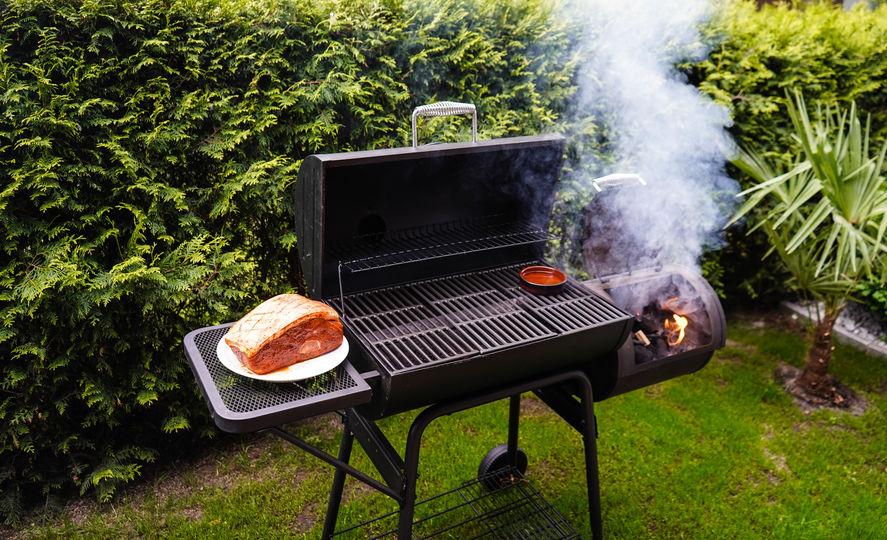 If you want to infuse rich and complex flavors into meat, cheese, poultry, and fish, a smoker would be a great investment.
If you want to infuse rich and complex flavors into meat, cheese, poultry, and fish, a smoker would be a great investment.
As you compare the various smokers on the market, you’ll find plenty of options that use pellet fuel.
Pellet smokers aren’t as common as charcoal, gas, or even electric models, but they do offer some unique advantages.
To learn whether pellet smoking is right for you, it’s important to start with the pros and cons.
You’ll be able to evaluate the advantages and any downsides to make an informed decision.
Here are the most important things to consider before you buy a pellet smoker.
The Basics of Pellet Smokers
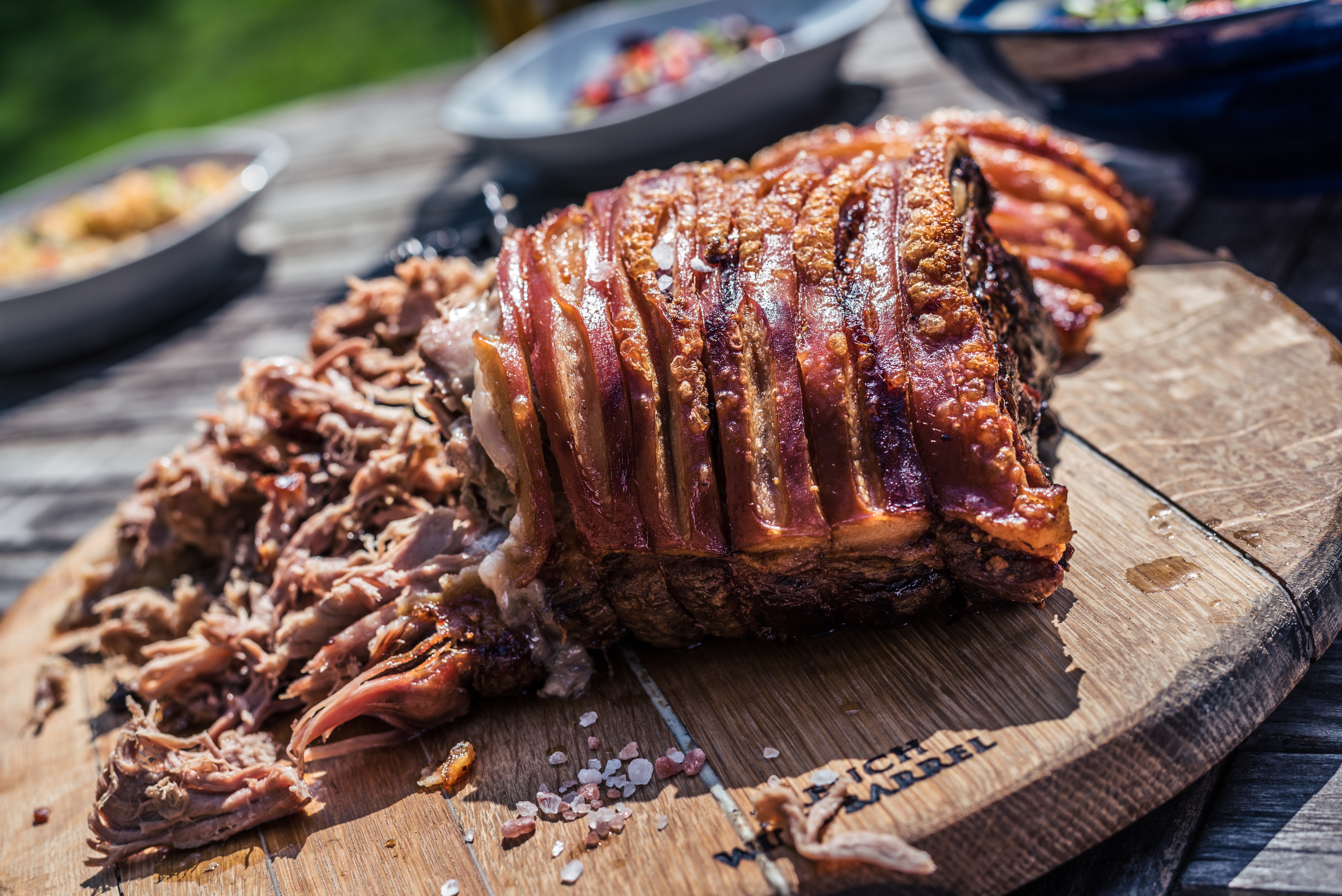
Pellet smokers, also known as pellet grills, are a type of outdoor cooking equipment that use compressed sawdust pellets as fuel.
They work by heating the pellets with an electric heating element or a controlled combustion process to generate heat and smoke for cooking food.
Pellet smokers are popular because they are easy to use and offer consistent, reliable temperature control.
They also impart a unique, smoky flavor to the food.
They can be used to smoke, grill, roast, or bake a wide variety of meats, vegetables, and other foods.
While gas and charcoal grills are designed to cook food quickly, pellet smokers and pellet grills usually take hours to cook the same ingredients.
Rather than applying heat directly below the food, the heat and smoke will come from an offset chamber that radiates heat.
A pellet smoker has more in common with a convection oven than it does a traditional grill.
You won’t be able to sear or chargrill your food. Instead, you’ll be able to slow-cook cuts of meat to infuse maximum flavor.
Here are some basic components and features of pellet smokers.
- Hopper. This is where the pellets are stored. The size of the hopper varies depending on the model, but it typically holds enough pellets for several hours of cooking.
- Auger. The auger is a motorized screw that moves the pellets from the hopper to the fire pot.
- Fire pot. This is where the pellets are burned to create heat and smoke.
- Controller. The controller regulates the temperature of the smoker by adjusting the speed of the auger and the amount of pellets that are fed into the fire pot. Some controllers also have built-in meat probes that allow you to monitor the internal temperature of the food being cooked.
- Cooking grates. Pellet smokers have one or more cooking grates where the food is placed.
- Drip tray. A drip tray collects the juices and grease from the food as it cooks, preventing flare-ups and making cleanup easier.
- Exhaust vent. An exhaust vent allows smoke and heat to escape from the smoker.
Pellet smokers come in a range of sizes and price points, from compact models suitable for small outdoor spaces to large, high-end models with advanced features.
Some popular brands include Traeger, Pit Boss, Camp Chef, Z Grills and Green Mountain Grills.
Advantages of Using a Pellet Smoker
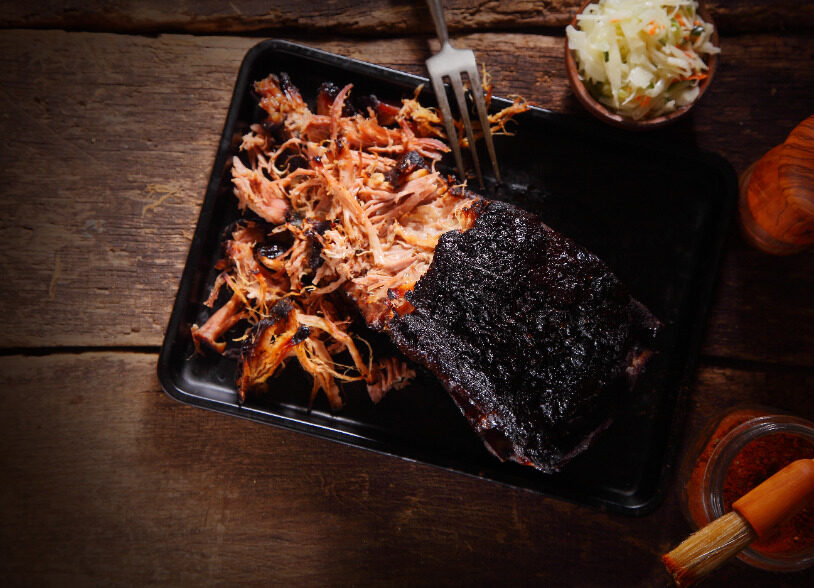 Pellet smokers are becoming increasingly popular among grillers due to their versatility, ease of use, and unique smoky flavor.
Pellet smokers are becoming increasingly popular among grillers due to their versatility, ease of use, and unique smoky flavor.
Here are some advantages of using a pellet smoker.
- Consistent temperature control. Pellet smokers use a digital controller to maintain a consistent temperature, making it easier to cook food to perfection.
- Versatility. Pellet smokers can be used to smoke, grill, roast, or bake a wide variety of foods, making them a versatile option for outdoor cooking.
- Flavor. Pellet smokers use natural wood pellets to generate smoke, which imparts a unique, smoky flavor to the food.
- Ease of use. Pellet smokers are easy to use and require minimal effort to maintain a consistent temperature. They also have an automated feed system that ensures a steady supply of fuel.
- Efficiency. Pellet smokers are efficient, using only the amount of fuel needed to maintain the desired temperature. They also produce less ash than traditional charcoal or wood-burning smokers.
- Convenience. Pellet smokers can be used year-round, regardless of the weather. They can also be operated remotely using a smartphone app, allowing you to monitor the temperature and adjust settings from anywhere.
Overall, pellet smokers are a great option for those looking to add more flavor and variety to their outdoor cooking.
If you’re considering purchasing a pellet smoker, keep in mind the advantages and whether they align with your grilling needs and preferences.
Drawbacks of Using a Pellet Smoker for Cooking
While pellet smokers have many advantages, there are also some drawbacks to consider before making a purchase. Here are some potential drawbacks of using a pellet smoker for cooking:
- Cost. Pellet smokers tend to be more expensive than traditional charcoal or gas grills, and the cost of the pellets can add up over time.
- Dependence on electricity. Pellet smokers require electricity to operate, which can be a problem if you’re cooking in a remote location or experiencing power outages.
- Limited smoke flavor. While pellet smokers do produce a smoky flavor, it may not be as strong as that produced by traditional wood-burning smokers.
- Maintenance. Pellet smokers require regular cleaning and maintenance to ensure that they continue to function properly. The hopper and auger can become clogged with sawdust or other debris, and the heating element can wear out over time.
- Pellet quality. The quality of the pellets used in a pellet smoker can impact the flavor and performance of the smoker. Poor-quality pellets can produce more ash, create more smoke, and cause the smoker to run less efficiently.
- Limited cooking space. Pellet smokers tend to have smaller cooking areas than traditional charcoal or gas grills, which can be a problem if you’re cooking for a large group of people.
- Limited searing capability. Pellet smokers typically don’t get as hot as traditional grills, which can make it difficult to achieve a good sear on meats.
It’s important to consider these drawbacks alongside the benefits of using a pellet smoker when deciding whether or not to make a purchase.
Pellet Smokers vs. Traditional Smokers – A Comparison
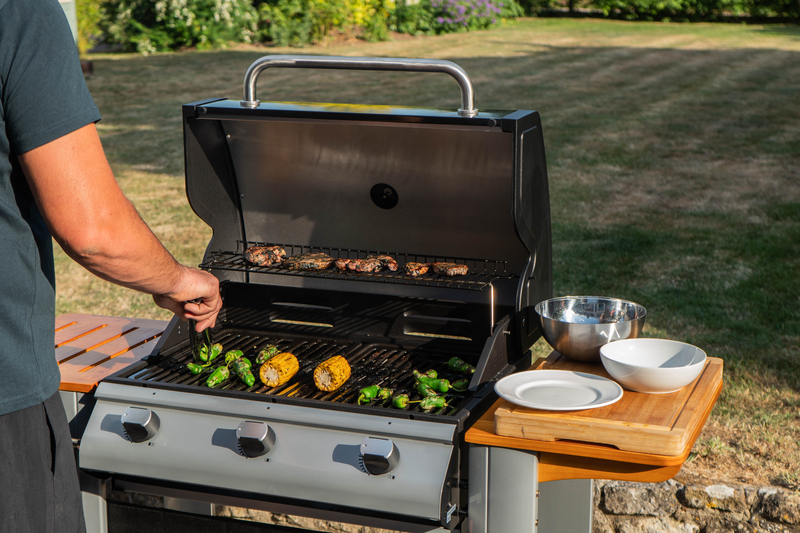 Pellet smokers and traditional smokers are both popular options for outdoor cooking, but they differ in several key ways.
Pellet smokers and traditional smokers are both popular options for outdoor cooking, but they differ in several key ways.
Here’s a comparison of the two.
- Fuel source. Traditional smokers use charcoal or wood as their fuel source, while pellet smokers use compressed wood pellets.
- Temperature control. Pellet smokers have digital controllers that allow for precise temperature control, while traditional smokers require more hands-on temperature management.
- Smoke flavor. Traditional smokers produce a strong, smoky flavor, while pellet smokers produce a milder smoke flavor that can be less intense.
- Cooking versatility. Pellet smokers can be used for smoking, grilling, roasting, and baking, while traditional smokers are primarily used for smoking.
- Convenience. Pellet smokers are generally easier to use and require less effort to maintain a consistent temperature. They also have an automated feed system that ensures a steady supply of fuel. Traditional smokers require more effort to maintain a consistent temperature and may require more frequent refueling.
- Cost. Pellet smokers are generally more expensive than traditional smokers, and the cost of the pellets can add up over time.
- Environmental impact. Pellet smokers use compressed wood pellets that are made from sawdust and other wood waste, making them a more environmentally friendly option than traditional charcoal or wood-burning smokers.
Ultimately, the choice between a pellet smoker and a traditional smoker comes down to personal preference and cooking style.
If you value convenience and versatility, a pellet smoker may be the better choice.
If you prefer the strong smoky flavor of traditional smoking and don’t mind the hands-on temperature management, a traditional smoker may be the way to go.
Cost of a Pellet Smoker
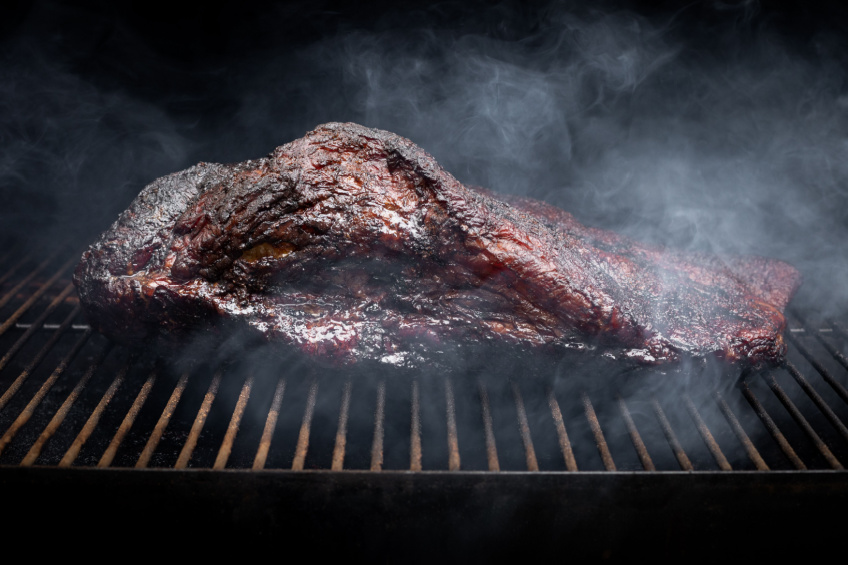 The cost of a pellet smoker can vary depending on the brand, size, and features.
The cost of a pellet smoker can vary depending on the brand, size, and features.
Generally, you can expect to spend anywhere from a few hundred dollars for a basic model to over a thousand dollars for a larger, more advanced pellet smoker.
However, it’s important to keep in mind that the initial investment can be offset by the long-term savings in energy and the versatility of the appliance.
If you want a quality pellet smoker with plenty of cooking space, consider the Z Grills ZPG-6002B Model.
This Z Grills model is a high-quality pellet smoker that offers a versatile cooking experience.
It features a digital control board that allows for precise temperature control and can smoke, grill, bake, roast, braise, and barbecue.
The large cooking surface and hopper capacity make it a great option for those who love to entertain or cook for larger groups.
Additionally, its sturdy construction and easy-to-clean design make it a durable and convenient addition to any outdoor kitchen.
Maintenance Requirements of a Pellet Smoker
Here are some maintenance requirements for a pellet smoker.
- Regular Cleaning. Pellet smokers require regular cleaning to prevent grease buildup and maintain proper operation. This includes cleaning the grates, drip tray, and ash pan.
- Emptying the Ash. The ash from burned pellets must be emptied regularly to prevent it from clogging the smoker’s ventilation system.
- Checking the Auger. The auger, which feeds the pellets into the firepot, should be checked periodically to ensure it’s free of debris and working properly.
- Inspecting the Igniter. The igniter, which starts the fire in the pellet smoker, should be inspected regularly to ensure it’s working correctly and not corroded.
- Lubricating the Moving Parts. The moving parts, such as the auger and fan, should be lubricated periodically to prevent wear and tear and ensure smooth operation.
- Covering the Smoker. When not in use, the smoker should be covered to protect it from the elements and prolong its lifespan.
By following these maintenance requirements, you can ensure that your pellet smoker continues to operate at its best and provide delicious meals for years to come.
Frequently Asked Questions About Pellet Smokers
- How do pellet smokers work?
Pellet smokers use an electric heating element to ignite wood pellets that are stored in a hopper. An auger then feeds the pellets into a fire pot, where they burn and create smoke. The smoke is circulated around the food by a fan, which helps to infuse it with flavor.
- What types of wood pellets can be used in a pellet smoker?
There are many different types of wood pellets available for use in pellet smokers, including mesquite, hickory, applewood, cherry, and oak. Each type of wood pellet has a unique flavor profile that can be used to enhance different types of food.
- Are pellet smokers easy to use?
Yes, pellet smokers are generally very easy to use. They have digital controllers that allow for precise temperature control, and an automated feed system that ensures a steady supply of fuel. This makes them a great option for beginners or anyone who wants a convenient outdoor cooking solution.
- How much do pellet smokers cost?
The cost of a pellet smoker can vary widely depending on the size and features of the unit. Entry-level models can be found for around $300, while high-end models can cost upwards of $3,000.
- How do you clean a pellet smoker?
Pellet smokers should be cleaned regularly to ensure that they continue to function properly. The hopper and auger should be cleaned of any debris, and the grates and interior of the smoker should be scrubbed with a grill brush and mild detergent.
- Can pellet smokers be used in cold weather?
Yes, pellet smokers can be used in cold weather. However, they may take longer to heat up and may require more fuel to maintain a consistent temperature in colder temperatures.
- Are pellet smokers environmentally friendly?
Pellet smokers are generally considered to be more environmentally friendly than traditional charcoal or wood-burning smokers, as they use compressed wood pellets made from sawdust and other wood waste.
Bottom Line – Is a Pellet Smoker Right for You?
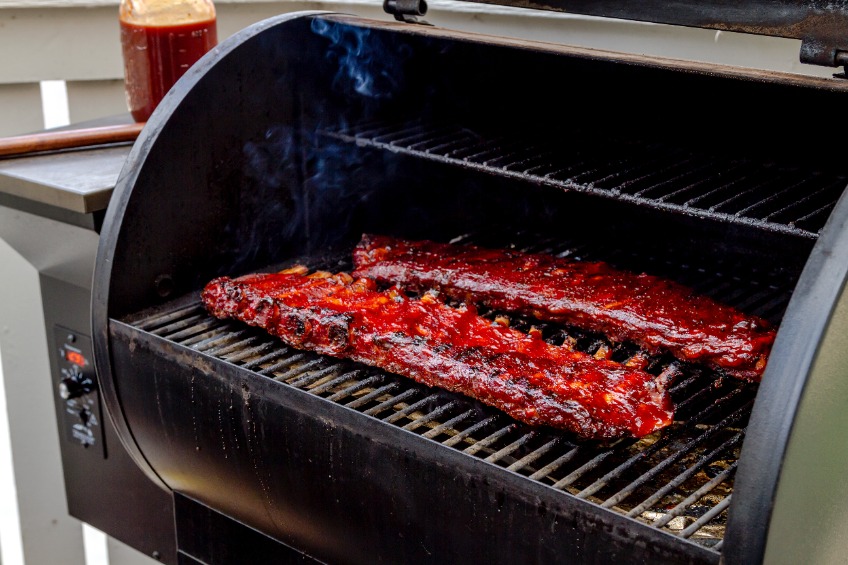
Whether or not a pellet smoker is right for you depends on your individual needs and preferences.
If you enjoy outdoor cooking and want a versatile, easy-to-use option that delivers consistent results and unique flavor, then a pellet smoker could be a good choice for you.
Pellet smokers are especially well-suited for people who value convenience and consistency in their cooking.
They are also a good choice for people who want to experiment with different cooking techniques, as they can be used for smoking, grilling, roasting, and baking.
However, if you prefer a more hands-on approach to cooking or enjoy the traditional taste and texture of charcoal or wood-fired cooking, then a pellet smoker may not be the best option for you.
Ultimately, it’s important to consider your personal preferences and cooking style when deciding whether or not to invest in a pellet smoker.
If you do decide to purchase one, be sure to do your research and choose a model that meets your needs and budget.
